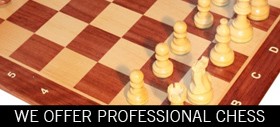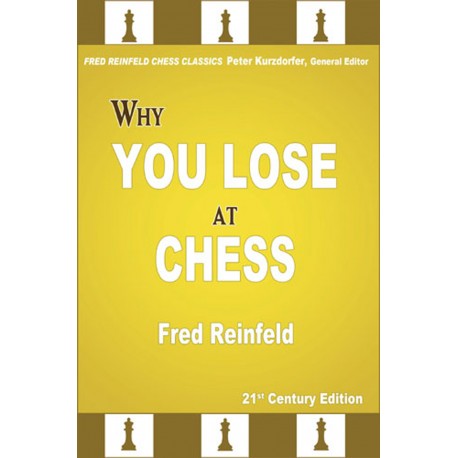No products
Fred Reinfeld - Why You Lose at Chess (K-5203/a)
K-5203/a
New product
The Way to Better Chess!
Why You Lose at Chess is vintage Reinfeld. He pulls no punches, showing the reader why he or she loses chess games. This is quite a remarkable feat when you think about it, because he never saw any of the games the vast majority of his readers played. But Fred knew the thinking that lurks behind poor chess decisions, and he let us all know what is wrong or irrelevant or misguided about the types of moves he witnessed far too often.
- Write a review
Data sheet
| Language versions | English |
| Year of Publication | 2016 |
| Pages | 128 |
| ISBN | 978-1-941270-26-4 |
| Paperback | medium |
| Width | 15.2 cm |
| Height | 22.8 cm |
More info
Beginning with a chapter on self-appraisal, he links a lack of understanding of your own personality with erroneous choices of moves and plans in a chess game. He goes on to delve into playing blindly (with no idea what you are actually doing) or by rote (memorization vs. understanding).
A couple of technical mistakes he points out include a lack of understanding of the tremendous importance controlling the center makes as well as knowing what features in a position should be present in order for an attack to be likely to work.
Among other observations, he gets on amateur players for being easily bored, impatient, lazy, and stubborn. And all of this comes with lucid examples from master play that back up his contentions.
All in all, this is an outstanding treatment of a subject players generally do not pay enough attention to. It has the potential to open anyone’s eyes to what playing strong chess can be like. Let Fred Reinfeld show you the way to better chess…
Reviews















